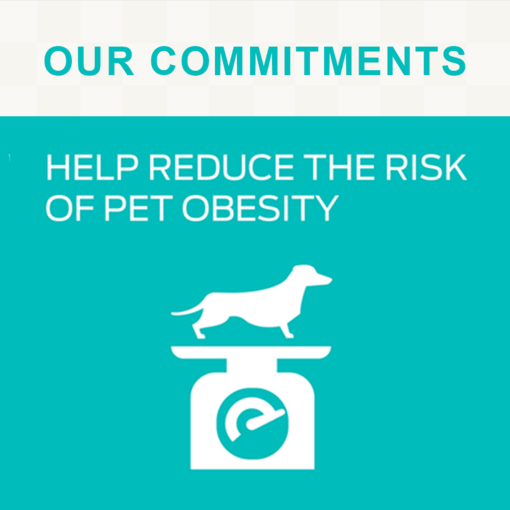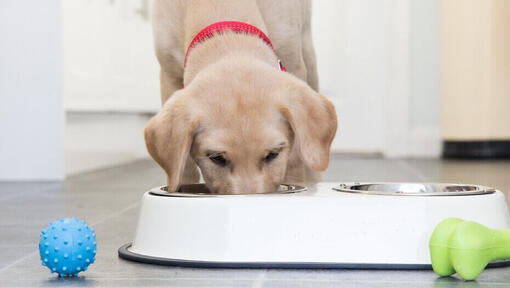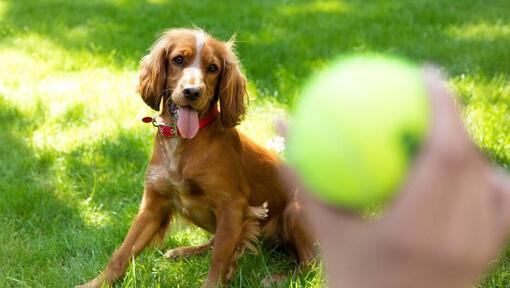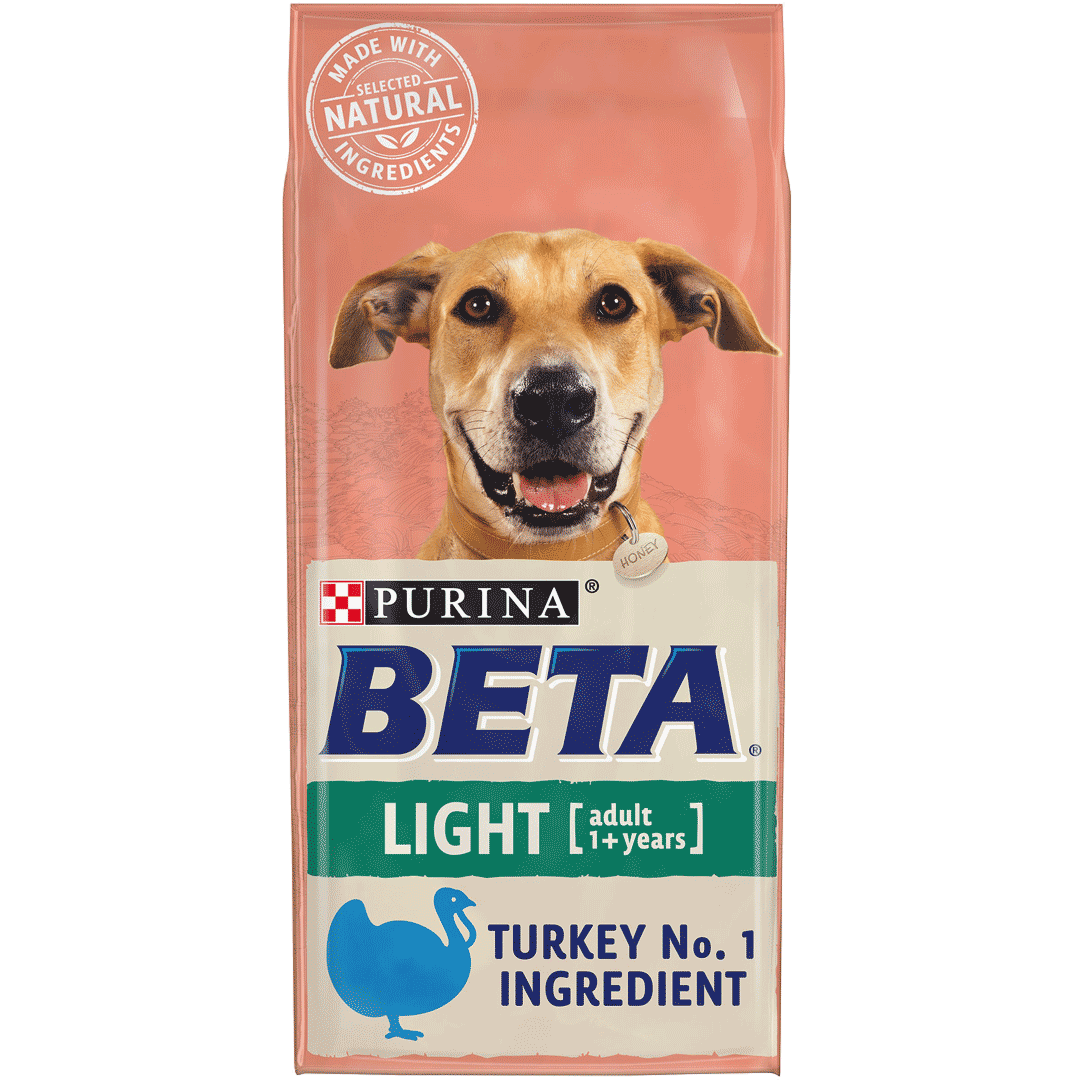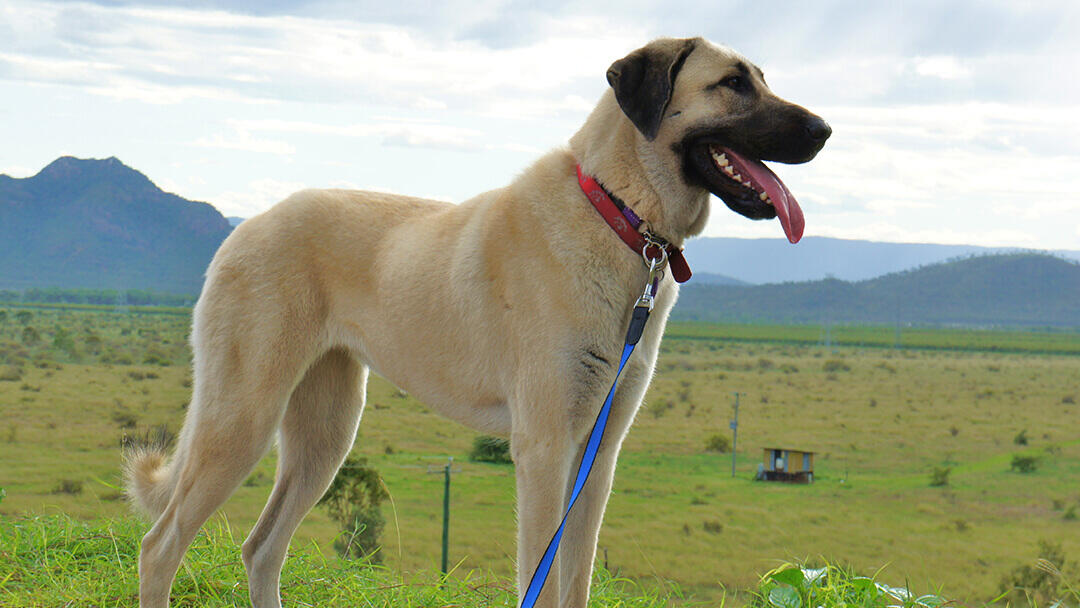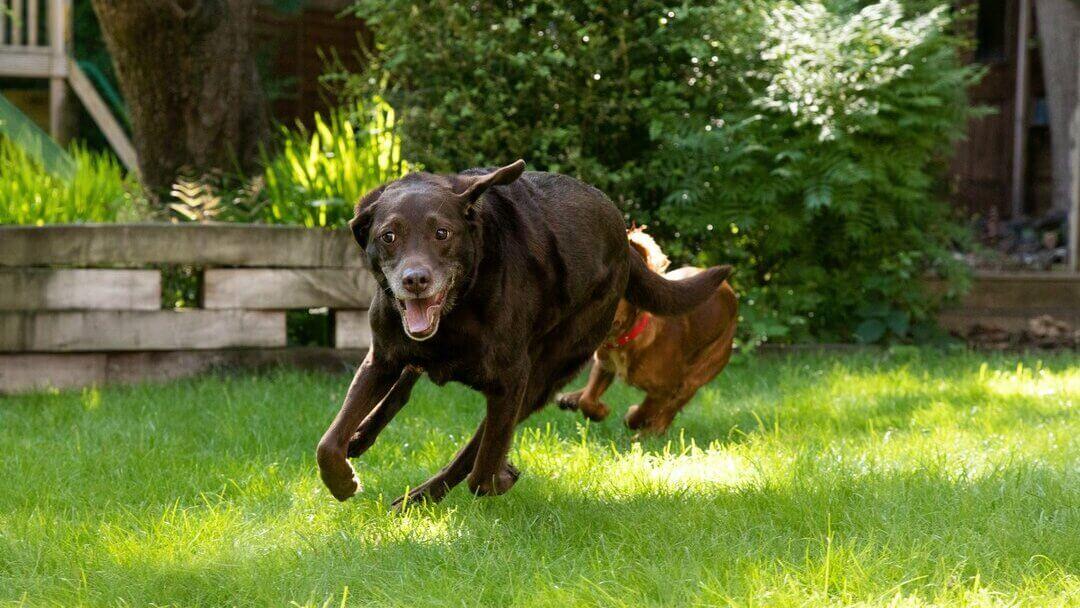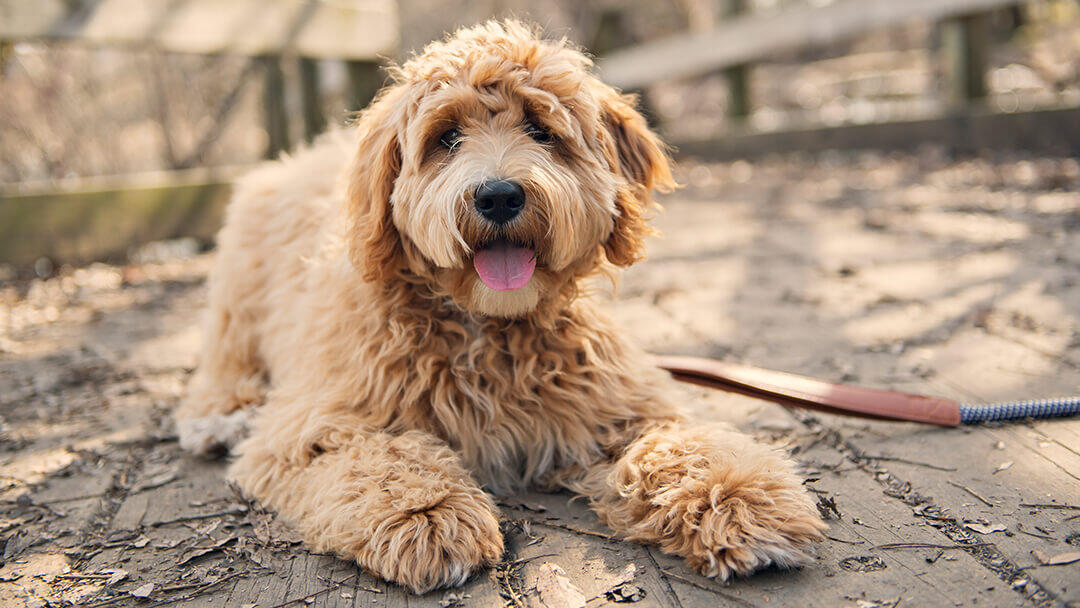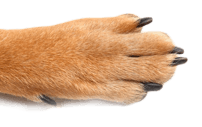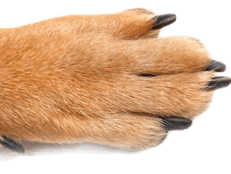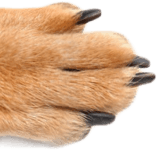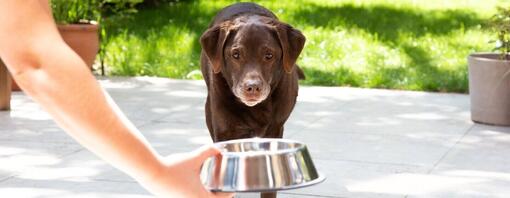
Just like us, it’s not hard for dogs to put on a few extra pounds, especially as they get older and exercise less.
As excess weight and rates of obesity in dogs increases, so do the risk of developing related health problems. A staggering 35%* of all dogs in the UK are overweight – and most owners don't even realise it until they take their pets to the vet for a related illness. Obese and overweight dogs are much more likely to develop health problems such as diabetes, respiratory conditions, arthritis and even behavioural problems, so it's easy to see why monitoring your dog's weight and body condition carefully is important.
*Source: PDSA 2009
Is my dog overweight?
Your vet will be able to tell you during their regular assessments if your dog is overweight, but it’s quite simple to weigh a small dog at home using bathroom scales. First weigh yourself, then pick up your dog and get back on the scales to measure the difference. This will be more difficult for larger dogs, so if you have a bigger breed of dog, you may wish to stick to your vet’s scales!
For a more in-depth assessment, use our body conditioning tool. Checking your dog’s body condition is quick to do and allows you to spend even more quality, hands-on time with your pet.
Helping your dog lose weight
Talk to your vet before making any changes to your dog’s diet, as they’ll be able to advise you on the ideal weight for your dog and how it can be reached. The ideal Labrador weight, for example, will always be different from the ideal weight of a Toy breed, so you should know what weight you are aiming for. It’s important your dog is weighed and checked over for any underlying disease or health issues before you start fighting the flab, as their weight gain might not be caused by over-eating after all.
Dog weight loss tips
- To help your dog lose weight, increase the amount of energy they burn off (through exercise and play) and reduce the amount of energy they eat.
- Table scraps and treats are often high in calories, so cut these out and make sure everyone else in the family does the same. Even when meant with affection, this still counts as cheating! If you have several dogs, feed your overweight dog separately to stop them stealing any leftovers.
- Try dividing their food into smaller portions and feed those more frequently to help reduce hunger and begging, and always keep track of what your dog is eating.
- Your vet may suggest reducing the amount you are feeding, or a special lower-calorie diet.
- Never ever ‘starve’ your dog or restrict their food without veterinary advice.
Consult your vet
If your dog fails to lose weight despite increased activity and reduced calories, speak to your vet again, who may want to investigate any underlying medical problems that can cause dog weight gain. Your vet’s practice might also offer a weight-reduction group for dogs, which will help you to monitor your dog’s weight as well as provide lots of tips and advice. Successful weight loss in dogs is a slow and steady process, and the secret to success is patience.
Light dog diets
You could also consider a specially formulated 'light' food for your overweight dog. ‘Light’ products have a lower fat content than standard dog food products, but are enriched with essential nutrients to meet your dog’s needs even when their rations are reduced.
If you currently feed your dog a specific diet for a medical condition, or a sensitive or delicate formula, make sure you talk to your vet before making any dietary changes.
Once your dog has returned to their ideal body condition, slightly adjust the amount you give them to help stabilise their weight – you don’t want them to keep losing the pounds! Continue to regularly monitor your dog’s body condition so your furry friend stays happy and healthy.
No crash diets
Never starve your dog in an attempt to get them to lose weight quickly. Reducing your pet’s food intake by more than 15% will mean that they won't get the right balance of essential minerals and vitamins, which are an essential part of dog nutrition. Upsetting the balance of your dog’s diet can put them at risk of becoming ill, so it’s important to involve your vet from the very beginning.
Increasing exercise
Food is only part of the equation when it comes to your dog losing weight. Lack of exercise can often be the cause of dog weight gain, so exercise is important to encourage healthy weight loss.
Dog exercise tips
- Increasing the amount of exercise your dog receives is easy and can greatly benefit an overweight dog.
- A 10 minute longer walk or 20 more minutes of playtime each day also means that you’re spending more time with your pet, and a few more tosses of “fetch” can be as good for your health as it is for theirs!
- Make sure the exercise is vigorous (depending on veterinary advice and your pet’s age), which means getting your dog’s heart racing!
- Be careful not to do this when the temperature outside is very high, or you may risk heatstroke. Never exercise your dog in very hot weather and avoid the midday sun.
Be patient
It's always a good idea to consult your vet before putting your dog on a weight-loss programme, as your dog's weight is very strongly linked to their health. As well as helping you to develop an individual weight-loss regime for your pet, your vet will also be able to track progress and provide you with ongoing support. Many practices have a regular weight-loss clinic to help keep you and your pet motivated and on the right track.
Purina brands for overweight and obese dogs
Several leading Purina brands offer carefully prepared light diets for overweight dogs, each the result of the very latest scientific advances in quality, taste and nutrition, developed to help support a managed weight loss program. Click any brand to learn more.
Dog weight loss should be gradual – over several months depending on how much your dog has to lose – and may in some cases take up to a year. If your dog loses weight too fast, they can easily put it all back on, so be patient.
Looking for more dog exercise tips? Read our article to get inspired.


